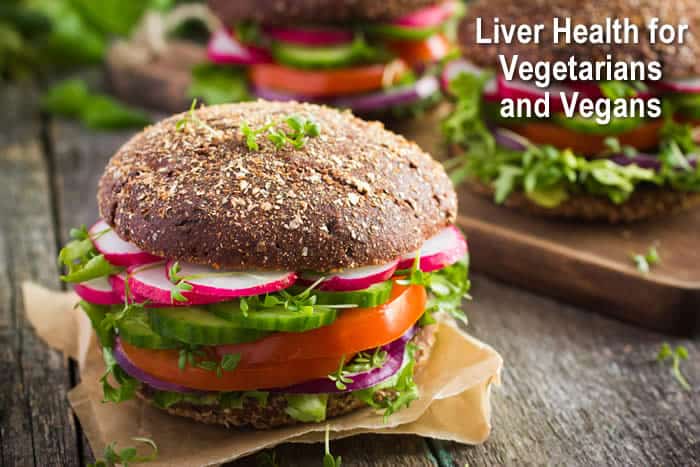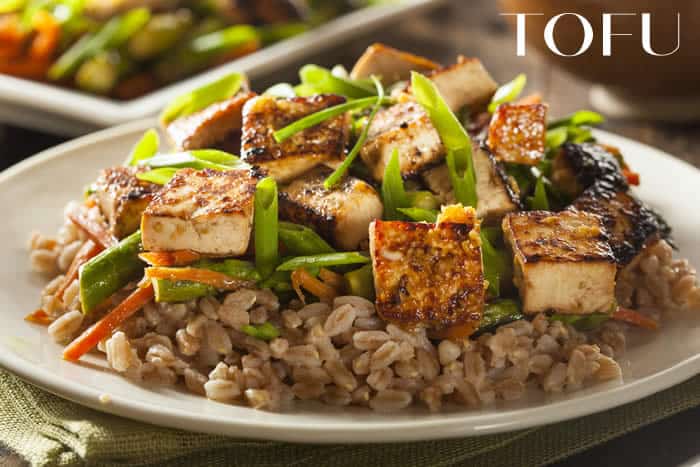What we eat impacts our health. How can your liver benefit from skipping meat and animal-based products, and following a plant-based diet instead?

According to a 2019 National Harris Poll, an estimated 4% of adult Americans follow either a vegetarian diet (no meat, fish, poultry, or seafood) or a vegan diet (no meat, fish, poultry, seafood, eggs, or dairy). (1) It also found that 46% of adults avoid animal-based products all or part of the time when dining out.
This makes it important to consider how following a plant-based diet may affect liver health. With that in mind, let’s start with the good news. If your diet is vegetarian or vegan right this moment, your liver might already be benefiting from this type of eating plan.
Vegetarian Diets and Fatty Liver Risk
A 2018 study looked at 1,274 people following a vegetarian diet, then compared them to 2,127 others who were non-vegetarian. (2) Based on the data collected, researchers reported that individuals who were on a vegetarian diet had lower chances of fatty liver. Additionally, if people following a vegetarian diet did have liver fibrosis, this fibrosis was less severe than in their non-vegetarian counterparts.
One reason cited for these results was that people eating a plant-based diet often have a lower body mass index or BMI. BMI has long been associated with disease risk, so having this number be in the healthier range should also equate to a lower risk of major disease—including diseases affecting the liver.
Another smaller-scale study, this one published in 2021, also made a positive connection between plant-based eating and reduced incidences of fatty liver. (3) This one involved 26 patients with nonalcoholic fatty liver disease (NAFLD), all of whom agreed to follow a vegan diet for six months.
After the six months ended, participants lost a mean of 5 kg of body weight (11.02 pounds), reduced their BMI by 1.6 points, and improved their liver enzymes. In 76.9% of the patients, their liver function normalized.
Studies such as these suggest that following a vegetarian or vegan diet may help both prevent and treat fatty liver disease. But there are a couple of additional steps you can take if you want to boost your liver health even more.
How Vegetarian and Vegan Eaters May Improve Their Liver Health
The 2018 study mentioned above also broke down fatty liver risk based on certain foods. Specifically, it noted that when one serving of refined grains was consumed instead of a serving of whole grains, the risk of fatty liver increased between 3% and 12%. (2)

Whole grains contain all parts of the grain kernel. This includes the outer layer of the grain (the bran), the middle layer (the endosperm), and the core (the germ).
Refined grains have no bran or germ as both of these are removed during the milling process. The reason this is an issue is that a large portion of the nutrients in grains—including various B vitamins, fiber, and iron—are in the bran and germ. (4)
So, replacing refined grains such as white flour, white rice, and white bread with whole grains may do some good. Whole grains to consider including in your diet, potentially reducing your risk of fatty liver, are:
- whole-grain bread, cereal, or pasta
- steel cut oats
- brown or wild rice
- quinoa
- popcorn (unsalted and air-popped)
Eating Plant-Based Sometimes May Still Offer Liver Benefits
What if you’re one of the 46% of Americans who only eats vegetarian or vegan some of the time, such as when eating out? Although it may seem minimal, this can offer benefits to your liver as well.
Again, going back to the 2018 study, it found that when one serving of meat or fish was consumed instead of one serving of soy, the risk of fatty liver increased between 12% and 13%. (2) This suggests that substituting soy for meat and fish for only a portion of your meals might still provide positive effects.
If you’ve never eaten soy, many compare its taste to that of a white bean. You can swap out your beef in chili and stews with a textured soy product or turn on the grill and cook up some extra-firm tofu.

You can even eat tofu as a snack. It will generally take on whatever flavor you use on it, so you can marinate it in your favorite flavoring or dressing mix, then snack on it when your stomach starts to rumble.
You can also roast soy nuts and put them on top of your salad. This adds another taste and texture without also adding animal-based products—potentially improving your liver health at the same time.


